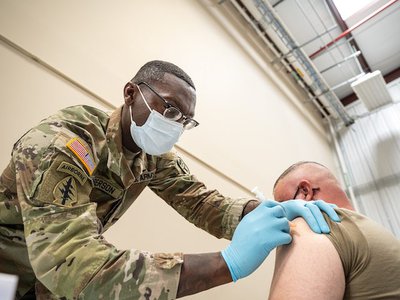Margaret Thatcher once said, “European nations were made by history. The United States was made by philosophy. Unique among all nations, the United States knows precisely when and exactly why it was founded.”Today, that may be changing. Survey after survey shows that Americans have a dismally poor understanding of the founding principles underpinning our nation.
Only one in four Americans can name all three branches of government. Seventy percent don’t know that the Constitution is the supreme law of the land.
It gets worse. According to a jaw-dropping survey recently commissioned by the Conference on Jewish Material Claims Against Germany (Claims Conference), nearly two-thirds of young adults don’t know that 6 million Jews were killed in the Holocaust. Nearly a quarter said they believed that the Holocaust was a myth, or it had been exaggerated, or they weren’t sure.
What’s more, the National Assessment of Educational Progress, which regularly issues national report cards on such topics as civics, geography, and U.S. history, found that three-quarters of eighth-graders were unable to demonstrate a proficient understanding of democratic citizenship, government, or American constitutional democracy.
For elected officials, education leaders, parents, and concerned citizens everywhere, these statistics should be a call to action. Our democracy depends on an engaged and informed citizenry. We need a swift intervention — which begins with the family and is solidified in the classroom.
Justice Sandra Day O’Connor, herself a living civics lesson, said, “Knowledge of our system of governance and our rights and responsibilities as citizens is not passed along through the gene pool. Each generation of Americans must be taught these basics.”
In her honor, today and every September 25 hereafter, Arizona is celebrating “Sandra Day O’Connor Civics Celebration Day.” The date is significant; it’s the anniversary of Sandra Day O’Connor’s swearing-in as the first female Supreme Court justice of the United States.
But it’s more than just honorary. A law I signed in March (the “Civics Celebrations Day bill“) requires schools to dedicate the majority of today’s classroom instruction to civics. That means that, from our littlest kindergartners to high-school seniors, students across Arizona are spending today learning the importance of our constitutional system.
These types of intentional interventions can help turn back the tide of years of disappearing civics curriculum. As an example of how far we’ve fallen, the same NAEP report card showed that just 22 percent of eighth-grade students have teachers with a primary responsibility for teaching civics to their classes.
It’s no wonder that we’ve seen appreciation for our government and its institutions replaced by apathy and alienation.
Another way to make sure that civics gets back into the classroom is to test it. After all, what gets tested gets taught.
That’s why I was proud to make the first bill I signed the American Civics Act, legislation that requires graduating high-schoolers to pass the same test given to new citizens. Today, 34 other states have followed Arizona’s lead by passing similar legislation.
Advancing civics instruction need not be partisan; in fact, it can be bipartisan, as it has been in Arizona and in states around the country.
Just as we have a responsibility to ensure that students are equipped to excel in the workforce, we have an obligation to prepare them for the demands of citizenship. There are more benefits to this than simply voter turnout.
An appreciation for the principles and history that bind us together as a nation reminds us that disagreement doesn’t have to lead to division; that ideas and action do matter; and that our country has been tested before and has always endured.
We have our work cut out for us, but across the country, where students are engaged and learning about the Constitution and its purpose, there is hope.
Let us not resign ourselves to cynicism and hopelessness. We can rise to the challenge and meet this moment with the same innovation and resolve that have characterized the American experiment for the past nearly 250 years. Indeed, it is our generational responsibility. And it begins with the family and is solidified in the classroom.
Bring Civics Back to the Classroom
Decades of neglected civics education have resulted in widespread ignorance of America’s history and founding principles.







